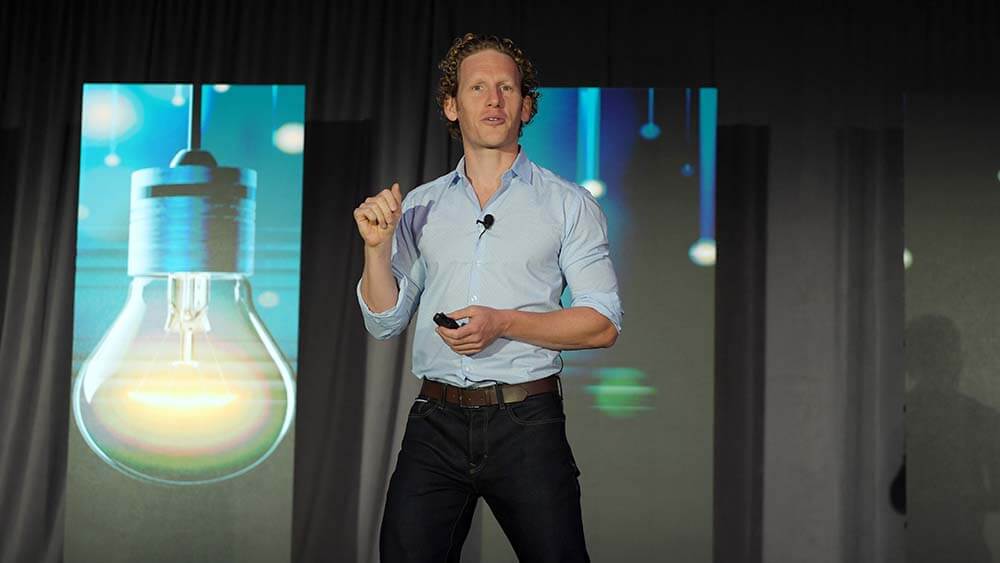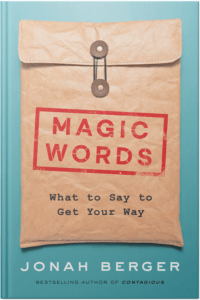
In a recent webinar, author and marketing professor Jonah Berger shared pointers on how people can make their communications more effective.
It’s not that I care that much about getting my way that prompted me to attend Adweek’s “What to Say to Get Your Way” webinar this week. It’s more that I’m a big fan of bestselling author, Jonah Berger, Ph.D., who gave webinar participants a whirlwind tour of his latest book, Magic Words (same subtitle as the webinar).
Convene has written about Berger, a marketing professor at the University of Pennsylvania’s Wharton School of Business, before. Most recently, Magic Words inspired our Event Marketing column, and we interviewed him back in 2015 before he took the stage as a general session speaker at Convening Leaders 2016 in Vancouver, Canada.
Obviously, Magic Words covers a topic that captures my interest because I write for a living, but in the webinar, Berger stressed that everyone writes and speaks. We can all use some tips to make our communications more effective, even if we’re not looking to get our way. Here are some of his pointers from the webinar:

Jonah Berger’s latest book, Magic Words: What to Say to Get Your Way
Turn Actions Into Identities
Just by adding a letter or two to a word, your chances of getting people to respond to a request you make of them goes way up, Berger said. He gave the example of a communication meant to encourage people to vote: One group of people was sent a message to “please vote,” while another set was sent a message to “be a voter.” There was a 15-percent increase in the likelihood among those who got the “be a voter” message that they would actually turn out to vote. That’s because “people know that they should take certain actions,” Berger said, “but they care more about their identities.”
Thinking about the events industry, this turn of phrase could be used to encourage attendee participation, for instance. Based on the logic and research Berger cites in Magic Words, “be a volunteer” would likely result in greater engagement than “please volunteer,” and “be a session leader” would be thought of more favorably than “lead a session.”
Describing someone as an “innovator” rather than “being innovative,” Berger added, makes it seem like their creativity is a more stable and persistent trait.
And considering all the challenges event professionals face today, these two suggestions can help with brainstorming solutions:
Turn Shoulds Into Coulds
Asking yourself “what should I do?” in a difficult situation, Berger said, leads you to think there is only one possible option or path to follow, whereas “what could I do?” opens up more possibilities.
Name the Uncertainty
Rather than saying “I’m not sure this will work,” reframe things this way: “There are three things that need to happen for this to work.” This way, you make it clear that you’ve given it thought and recognize the obstacles to success.
Finally, Berger encouraged the audience not to fill conversational “dead” space with fillers like ums, uhs, or likes. Pausing to collect your thoughts in silence is actually more effective when speaking. And don’t be afraid to ask advice of others — many of us worry that will make us seem less smart or competent, Berger said, but it actually has the opposite effect. “People are highly egocentric,” he said. More often than not, if you ask someone for advice, they will be flattered that you value their opinion and will think more highly of you.
Michelle Russell is editor in chief of Convene.
